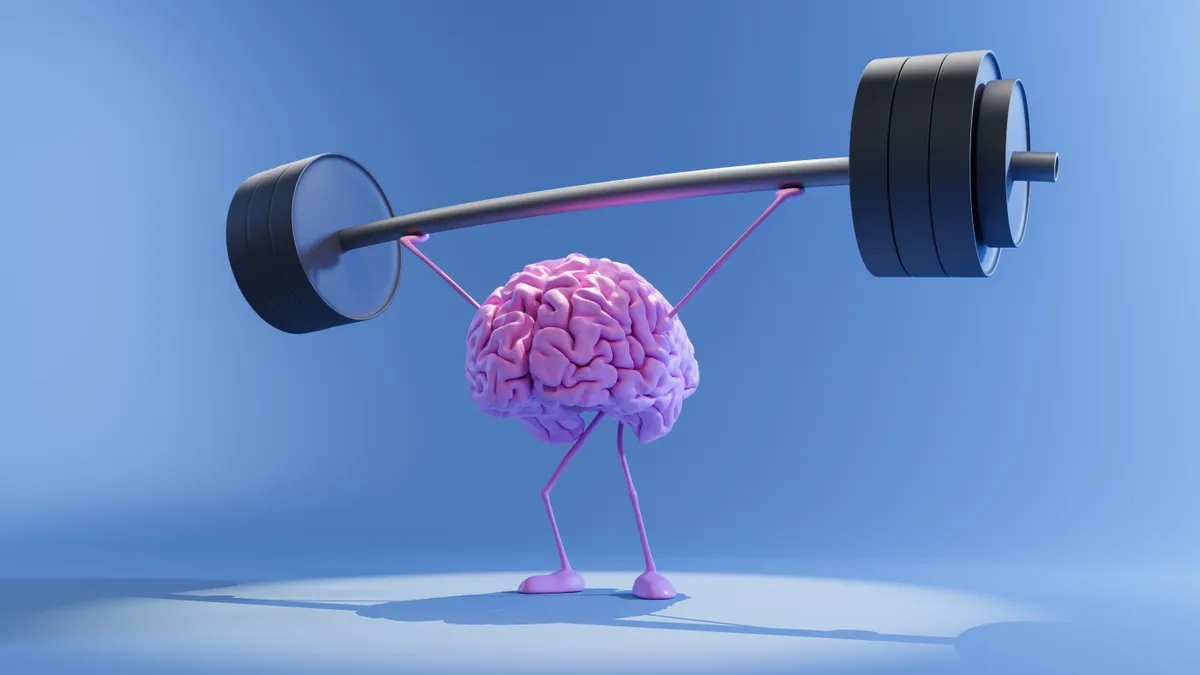
After reaching age 40, many individuals begin to notice subtle shifts in their cognitive abilities. Each year, our reaction time tends to slow down by a few thousandths of a second, and recalling items from a shopping list can become more challenging. While these changes might raise concerns about serious conditions like Alzheimer's disease, they are often a normal part of aging, as explained by Matt Huentelman, a professor at TGen, the Translational Genomics Research Institute in Phoenix.
Huentelman is instrumental in leading MindCrowd, a free online cognitive test that has garnered participation from over 700,000 adults. Intriguingly, around a thousand participants demonstrated exceptional cognitive abilities, performing at a level comparable to individuals 30 years their junior in tests measuring memory and processing speed. While genetics undoubtedly play a role in cognitive performance, Huentelman and his research team are delving into other factors that contribute to this remarkable cognitive longevity.
The goal of studying these exceptional performers is to uncover insights that can benefit the wider population. "We believe they can illuminate practices that may help the rest of us maintain cognitive function," Huentelman remarks. Early findings suggest that prioritizing sleep and maintaining cardiovascular health are foundational steps toward preserving cognitive abilities as we age.
In addition to sleep and cardiovascular health, several lifestyle choices can significantly impact cognitive function. Avoiding smoking, limiting alcohol consumption, and engaging in regular exercise are all beneficial practices. Huentelman recently participated in a gathering of researchers in Miami, organized by the McKnight Brain Research Foundation, which is dedicated to funding studies on age-related cognitive decline and memory loss.
Alice Luo Clayton, a neuroscientist and CEO of the foundation, emphasizes the importance of understanding brain aging at a mechanistic level to effectively preserve cognitive function in later life. Her comments highlight the need for research that connects lifestyle choices with brain health outcomes.
One of the speakers at the Miami event, Christian Agudelo, a sleep neurologist from the University of Miami's Evelyn F. McKnight Brain Institute, shared personal anecdotes that underline the critical role of sleep in cognitive health. "The value of sleep and the consequences of sleep deprivation became apparent to me when I became a parent," Agudelo reflects. Now that his children are older, he enjoys more restorative sleep, which aligns with his research findings that indicate a strong correlation between sleep quality and cognitive decline.
Agudelo points out that achieving better sleep is not merely about accumulating more hours in bed; rather, it hinges on obtaining high-quality sleep that allows the brain to cycle through all necessary sleep stages. Researchers can evaluate sleep quality by monitoring brain wave patterns, yet many individuals can intuitively sense when they've had a fulfilling night's rest. "You go to sleep, wake up, and feel that the experience was worthwhile," Agudelo explains. "You feel refreshed."
Enhancing sleep quality can be challenging, but Agudelo suggests several behaviors that can contribute to better sleep. Waking up at the same time each day and syncing sleep patterns with natural light can lead to improved sleep quality. Additionally, being socially and physically active can help increase sleep pressure, which is the body's innate desire to sleep after prolonged wakefulness. "When sleep pressure is high, we can fall asleep more easily and experience deeper sleep," he notes.
Brain aging is also significantly influenced by vascular risk factors, such as high blood pressure, elevated cholesterol levels, and diabetes. Charles DeCarli, a neurologist who co-directs the Alzheimer's Disease Research Center at the University of California, Davis, explains that while these conditions are commonly linked to cardiovascular issues like heart attacks or strokes, they can also directly affect brain health. "Research involving thousands of adults aged 65 and older has shown that these risk factors can lead to observable changes in brain structure and integrity," he states.
In light of these findings, DeCarli and his research team are investigating whether controlling vascular conditions can lead to a "younger-looking brain." "If these diseases are well managed, can we expect to see improvements in brain health?" he asks, suggesting that the answer is likely affirmative. By addressing cardiovascular health and making informed lifestyle choices, individuals may enhance their cognitive longevity and overall brain health.